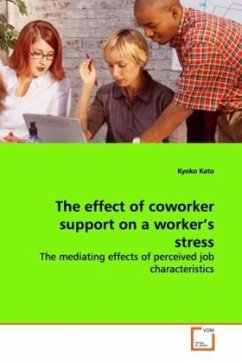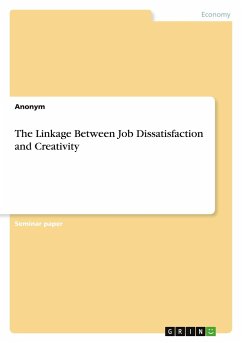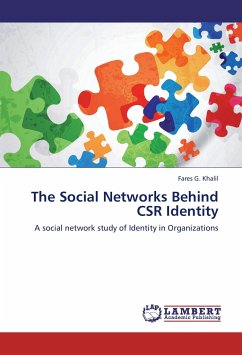Social support from the work environment has been
considered as one of the critical resources that can
reduce the negative effect of stressors, but the
mechanism that explains the effect of social support
on stress remains unanswered. The purpose of this
study is therefore to explain the effect of social
support, more specifically coworker support, on an
individual s stress by introducing job
characteristics as mediators. Using nationally
representative data collected by the Families and
Work Institute, this study tested an integrated
model based on two job characteristics theories, the
Social Information Processing approach (Salancik &
Pfeffer, 1978) and the Demand-Control model of job
characteristics (Karasek, 1979), proposing that an
individual s perception toward job characteristics
is socially constructed by his/her work environment
(coworkers support), which in turn affects the
level of his/her stress.
considered as one of the critical resources that can
reduce the negative effect of stressors, but the
mechanism that explains the effect of social support
on stress remains unanswered. The purpose of this
study is therefore to explain the effect of social
support, more specifically coworker support, on an
individual s stress by introducing job
characteristics as mediators. Using nationally
representative data collected by the Families and
Work Institute, this study tested an integrated
model based on two job characteristics theories, the
Social Information Processing approach (Salancik &
Pfeffer, 1978) and the Demand-Control model of job
characteristics (Karasek, 1979), proposing that an
individual s perception toward job characteristics
is socially constructed by his/her work environment
(coworkers support), which in turn affects the
level of his/her stress.








